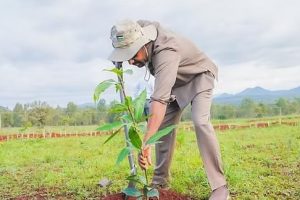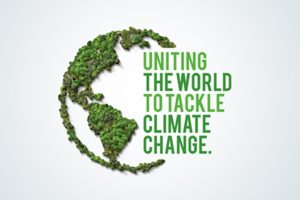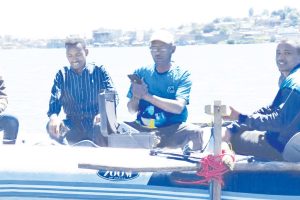BY DANIEL ALEMAYEHU
Tropics are a region of the Earth, roughly defined as the area between the tropic of Cancer and the tropic of Capricorn. Although topography and other factors contribute to climatic variation, tropical locations are typically warm and experience little seasonal change in day-to-day temperature.
The major features of tropics are high seasonal rainfall, 18oC (64 F) average temperature for all months, and 80 % of the world’s terrestrial biodiversity, according to UN State of The Tropics report 2020.
The report estimated that some 43% of the world’s population, almost 3.8 billion people, lives in the Tropics. Surprisingly, this region is more culturally diverse, and 80% of the world’s living languages are spoken.
The United Nations declared international days to be inaugurated on different days of the year. One among many international days celebrated around the world is the ‘International Day of The Tropics’.
Every year on June 29th since 2014, the world inaugurates international tropics day with the theme of extraordinary diversity of the tropics along with highlighting the challenges and opportunities that tropical nations face. This day also acknowledges the diversity and potential of the region.
According to the reports, the tropics contain nearly 95% of the mangrove forests with its 99% species. In addition, this region has the world’s 54% water resources, and immense biodiversity.
Most of the population in this region lives in countries which are considered to be ‘developing’. By 2050, half of the world’s population is expected to live in this region, the report indicated.
With this number of populations, the tropic nations face different challenges especially on two core points: challenges in ecosystem and challenges in health- related issues.
Africa, the continent that the three main world lines, the equator, the tropic of Cancer, and the tropic of Capricorn, run through is the best way to sustain the well-being of the globe. Over 80% of the countries of the continent lie in the tropical region. It also contains the second largest forest, the Congo Forest.
In Africa, the population has encountered challenges like climate change, deforestation, logging, urbanization, and demographic changes because this tropic region is vulnerable to various problems due to its lower socioeconomic development.
Oreoluwa Ola and Emmanuel Benjamin in their article focused on the preserving biodiversity in West Africa say that biodiversity is all about natural determination on living resources, and ecosystem is about the biodiversity flows to the benefits of men. The co-existence of the two helps humankind to live on the earth.
However, these two terms confront challenges in reality. Climate change, agricultural expansions, population explosion, urbanization, and the like are the biggest challenges of the region.
According to the study, “Close to 90% of West Africa’s original forest has disappeared with small fragments of this natural forest existing in Cote d’Ivoire, Nigeria, and Cameroon. Over-exploitation of forest resources, mining, agricultural expansion, and hunting and population growth is fragmenting tropical forests and driving biodiversity losses.
These losses threaten both wildlife as well as the current and future livelihoods of those individuals and communities that depend on ecosystems in West Africa.”
The study also remarked that the government and the private sectors are implementing the environmental conservation policies and programs to regulate and preserve biodiversity resources.
The other point related with the ecosystem is the Anthropocene, which refers to the time during which human activity has impacted the environment enough to constitute a distinct geological change. This happens mostly when there is growth in population, global productivity, and global energy use. This leads to an extraordinary outburst of consumption and productivity.
In this case, all African countries are expected to implement the environmental conservation practices as the Ethiopian government has implemented the past three years. The government of Ethiopia led by Prime Minster Dr. Abiy Ahmed has done marvelous activities on the conservation and preservation of the environment.
It has been three years since the people of the country started planting seedlings so as to have a better future regarding the ecosystem. The first two waves of planting seedlings across the country have made an immense impression on making the country green as the name of the movement is “Green Legacy”.
This helps the citizens of the nation to be involved in creating a better environment which is also good for the livelihood of the wildlife by forming a better place for living.
In this year’s rainy season, the Ethiopian government has planned to plant more than 5 billion seedlings with the ambition of planting 20 billion seedlings by 2024.
This kind of initiative should be stretched throughout the African continent as we are the heart of the tropic region.
As Africans, the other point that we should focus on is the health-related issues in tropical areas.
Prof. Alpha Omar Konare on African Regional Health Report said that “African countries will not develop economically and socially without substantial improvements in the health of their people.” This indicates that without sustainable health care throughout the continent, it will be devastating to ensure development. So that healthcare is the core point for the development of a nation.
Again, according to the State of the Tropics Report 2020, biodiversity loss along with climate change, persistent diseases, rising prevalence of non- communicable diseases, and COVID-19 are at the highest peak in the tropic region.
She also added that “Even though the tropical region is far from the rest of the world, some good changes have happened in recent years. The life expectancy increased at birth of greater than 60 years.”
Furthermore, maternal, newborn, and children’s deaths have continued to decrease. On the contrary, very few women and children get good quality healthcare, the professor remarked.
Unfortunately, based on the State of The Tropics report 2020, there are health related challenges as there are good changes. For instance, people aged 15-19, which is around 16.8 million, are living with HIV. Again, malaria, TB, and new drug-resistant TB are some of the major health related challenges in this particular region.
Just like the flourished movements of green legacy, we Africans as one continent must ensure sustainable healthcare and endeavor for the advancement of the continent. The leaders of Africa from all walks of life should meet on the round table and have some solutions to be forwarded.
Moreover, Africans should work together to meet the sustainable goals set by the United Nations.
Therefore, with the blessings that the tropics have, we must cope up with the challenges and insight the bright future ahead. This region has tremendous resources, and these resources must be used adequately because we Africans are the future of the world. As we are 80% included in the tropic region, we should strive for creating a better and sustainable environment for the next generation. All in all, saving Africa is the solitary solution for the future of the globe.
The Ethiopian Herald June 29/2021





